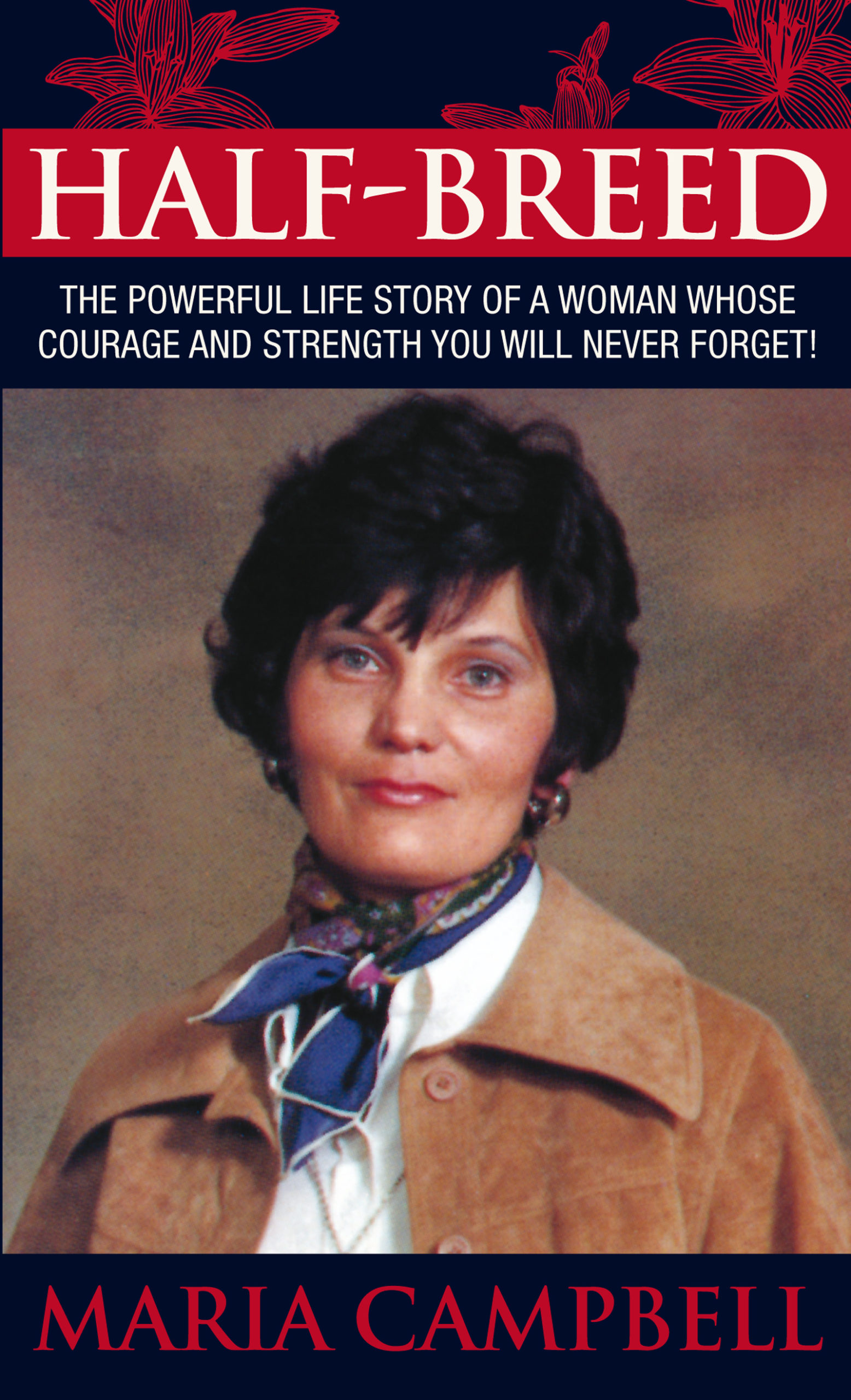Half-Breed
by Maria Campbell
Maria Campbell's biography is a classic, vital account of a young Métis woman's struggle to come to terms with the joys, sorrows, loves and tragedies of her northern Saskatchewan childhood.
Maria Campbell's biography is a classic, vital account of a young Métis woman's struggle to come to terms with the joys, sorrows, loves and tragedies of her northern Saskatchewan childhood.
Maria was a strong and sensitive child who lived in a community robbed of its pride and dignity by the dominant culture. At 15 she tried in vain to escape by marrying a white man, only to find herself trapped in the slums of Vancouver -- addicted to drugs, tempted by suicide, close to death. But the inspiration of her Cree great-grandmother, Cheechum, gives her confidence in herself and in her people, confidence she needs to survive and to thrive.
Half-Breed offers an unparalleled understanding of the Métis people and of the racism and hatred they face. Maria Campbell's story cannot be denied and it cannot be forgotten: it stands as a challenge to all Canadians who believe in human rights and human dignity
Maria was a strong and sensitive child who lived in a community robbed of its pride and dignity by the dominant culture. At 15 she tried in vain to escape by marrying a white man, only to find herself trapped in the slums of Vancouver -- addicted to drugs, tempted by suicide, close to death. But the inspiration of her Cree great-grandmother, Cheechum, gives her confidence in herself and in her people, confidence she needs to survive and to thrive.
Half-Breed offers an unparalleled understanding of the Métis people and of the racism and hatred they face. Maria Campbell's story cannot be denied and it cannot be forgotten: it stands as a challenge to all Canadians who believe in human rights and human dignity
About the Author
Reviews
"The daring account of a strong-willed woman who defeated poverty, racism, alcohol and drug addiction by the age of thirty-three."
Saturday Night
"You can almost feel this book vibrating in your hands, it is so compelling. You read it with a kind of agonized, heart-in-the-mouth sensation, halfway between laughter and tears.... Truth is stronger than fiction."
Victoria Times-Colonist
"When her powerful personal story, Halfbreed, was published in 1973, it had been credited with the rebirth of Indigenous literature ... Reading Halfbreed opened my eyes to racism as a social determinant of health — the racism we're still fighting today in all our institutions. It's this racism that explains missing and murdered Indigenous women and girls, and the overrepresentation of Indigenous people and people of colour in our prisons."
Carolyn Bennett, Globe and Mail





